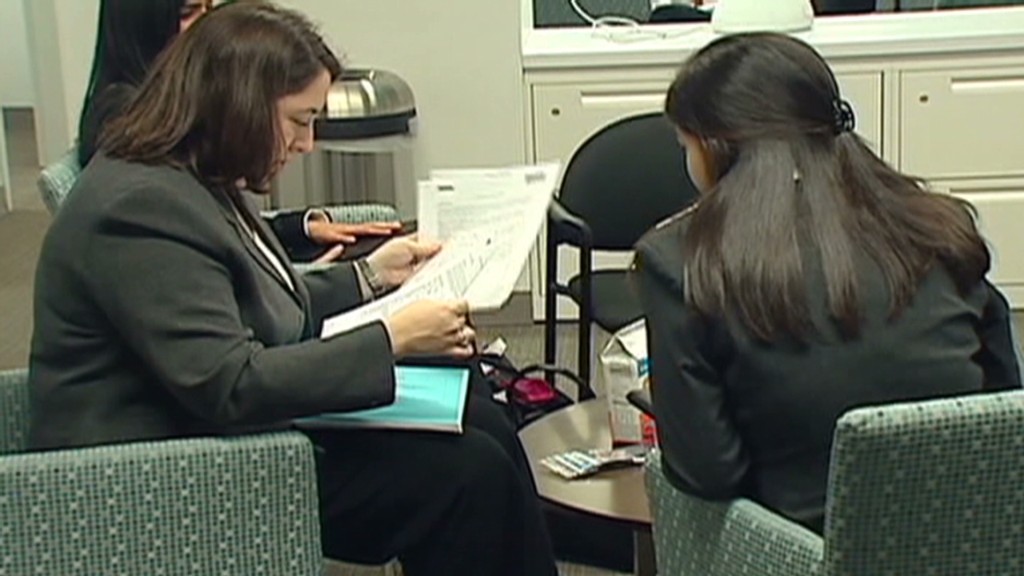
Thanks to the government's spending cuts, you may have a smaller chance of being audited this year.
The cuts, known as the sequester, will wipe $600 million from the IRS's budget this year, forcing the agency's nearly 100,000 employees to be furloughed without pay for up to seven days.
Five furlough days have been identified so far -- beginning on May 24 and they will be spread out among separate pay periods, according to the National Treasury Employees Union.
Not only will these furloughs shrink paychecks for IRS workers, but they will also make it harder for taxpayers to receive the assistance they need and enforcement efforts will be significantly reduced as well, IRS Acting Commissioner Steve Miller said in congressional testimony earlier this month.
Related: Spending cuts -- Reality of furloughs hits home
"[W]ithout a change in the current budget environment, the American people will see erosion in our ability to serve them, and the Federal government will see fewer receipts from our enforcement activities," he said.
Translation for taxpayers: you're less likely to be audited, said Mark W. Everson, vice chairman of tax service firm alliantgroup and former head of the IRS.
"Of course this has an impact on the number of audits," said Everson. "If you have someone working on 20 audits, if they're not working as many days it's going to take longer to finish those and they're not starting new ones."
Related: How to survive a tax audit
The irony is that by limiting audits, the sequestration is limiting the revenue that flows into the government's coffers, he said.
Audits have already been on the decline due to budget cuts at the IRS over the last few years. Last year, for example, the number of audits dropped by 5% to about 1.5 million.
Your odds of being audited still rise significantly with the more income you have, however. While the overall chance of being audited is 1%, those odds jump to 18% for people with income of $5 million or more and 27% for taxpayers earning $10 million or more.
Related: 12 tax audit red flags
And if you do get audited, don't think the IRS is going to be lax just because it's squeezed on resources.
"The [IRS] won't start [as many] new audits, but I think it will be equally rigorous in the ones it conducts, so don't think that they won't be as thorough as they once were," said Everson.
